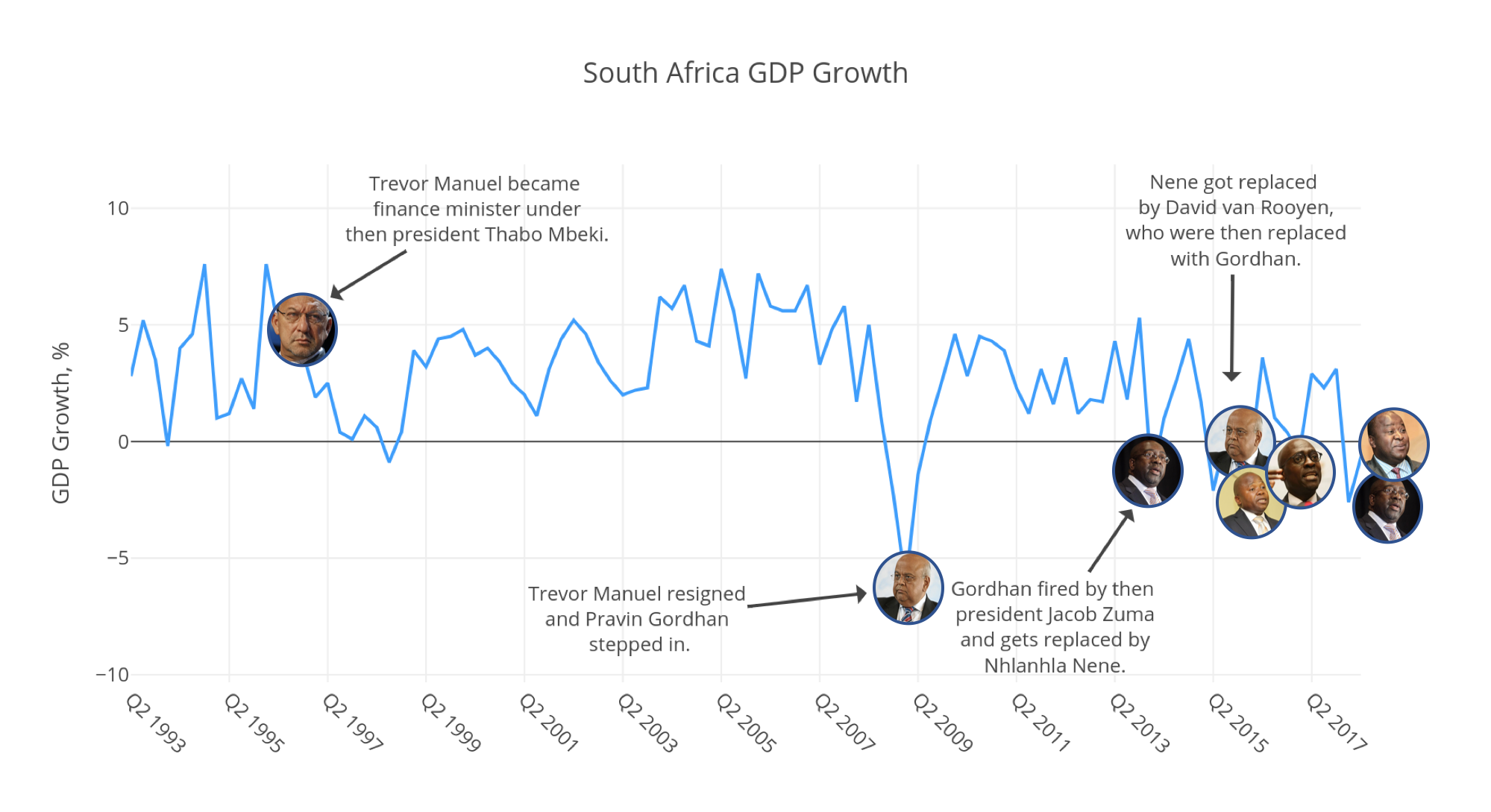Mboweni also wants to be open- minded about letting some private sector thinking filter into the states approach to public enterprises and even possibly land reform. (Esa Alexander/Sowetan)
In some ways this year’s medium-term budget policy statement was almost as bad as last year’s. The bruising reality check that came with larger deficit and debt figures and lower revenue forecasts brought the optimism of the February budget down with a sharp bump.
But the chief difference between this medium-term budget and last October’s was new Finance Minister Tito Mboweni.
The former Reserve Bank governor brought with him the strong views that he is known for and, some analysts argue, credibility to the message of the budget, which was relatively positive, despite the gloomy numbers.
Last year’s medium-term budget was delivered by then finance minister Malusi Gigaba, who had been parachuted into the post earlier in the year after the shock axing of Pravin Gordhan and his deputy, Mcebisi Jonas.

M&G Data Desk
The 2017 medium-term budget offered similarly depressing numbers but there was little sense that there was a plan to right the ship.
This time around, Mboweni offered the outline of one, starting with the state’s R50-billion reprioritisation of funds for growth and job creation, and its aims to boost investment in the economy.
This medium-term budget was a “difficult story to tell”, as Mboweni put it. Economic growth forecasts have been cut from 1.5% to 0.7% for the year, and the budget deficit is now projected to reach 4% of gross domestic product (GDP) compared with 3.6% expected in the February budget. Revenue collection estimates in the coming three years were revised down by around R85-billion and government debt is now expected to increase to 55.8% of GDP for this year and reach 58.5% by 2021-2022.
In an effort to boost the economy, the state plans to reprioritise R32.4-billion over the next three years, with R15.9-billion being shifted to infrastructure programmes, industrialisation and the expanded public works programme. Another R16.5-billion will be directed to other programmes, including to help to restore the South African Revenue Service.
Another R14.7-billion is earmarked for upgrading informal settlements and R1-billion in housing subsidies is to be used to support low- and middle-income earners to buy homes.
Mboweni, only two weeks into the job, was not largely involved in crafting the detailed policy statement released on Wednesday. Nevertheless, in his speech and when fielding questions from journalists, he signalled his views on several hot-button issues, although it remains to be seen how some of them sit with his Cabinet colleagues and alliance counterparts.
There is also speculation about how much space Mboweni has to move regarding several tough issues, such as reconfiguring state-owned companies and actively cutting the state wage bill, particularly in a year running up to elections and in what is still below the surface a divided ANC.
But he did not hesitate to tackle some of these issues head-on.
After the last interest rate decision, the ANC released a statement, which was hastily retracted, pleading with the South African Reserve Bank to consider the plight of the poor. The incident has been seen as evidence of political pressure being placed on the bank to go soft on inflation.
Mboweni, in his speech, would have none of this. “Any growth plan must be built on two macroeconomic preconditions — a sustainable fiscal position and low and stable inflation. I am confident that governor [Lesetja] Kganyago and his team will continue to work tirelessly to keep inflation down,” Mboweni said.
The medium-term budget revealed that no more money would be found to accommodate the public sector wage agreement signed earlier this year. Instead, departments and the provinces must find the money to accommodate this in their existing budgets.
But, despite a decision destined to pit Mboweni against labour unions, he was confident that the country’s labour relations framework would enable “consultation and negotiation and settling of dis-agreements [in] a more responsible way”.
He gave a frank appraisal of what the public sector could learn from the private sector, particularly about matters such as performance management and evaluation.
He recounted his experiences of workplaces where employees who did not receive satisfactory evaluations knew, without having to be told, that they should “pack up your bags and go, because you are below par”.
“But whether you can have that kind of thinking in the public service, I doubt. But nevertheless there is something in there about performance evaluation,” he said.
He also derided the standard government practice of doling out annual 13th cheques.
He stopped short of calling for retrenchments and said the problem could be addressed when wage levels were scrutinised.
“We can have the same headcount with a lesser wage bill if we agree to do certain things about the level of compensation, for example,” he said.
Mboweni also wants to be “open- minded” about letting some private sector thinking filter into the state’s approach to public enterprises and even possibly land reform.
Mboweni’s frankness and his tough talk about corruption and the “heists” of public funds by dodgy officials may not be enough though.
“The speech was very much Mboweni. Blunt, to the point, full of home truths … talking about the inappropriate balance between the wage bill and core spending, talking of the need for difficult decisions on SOEs. All very much him, and very much representative of the classic [treasury] conservative-centre-left view as well,” said Peter Attard Montalto, the head of capital markets research at Intellidex, in a note. But fundamentally there was not enough political capital in the government or the ANC to undertake some of these difficult reforms, he said.
“Mboweni will be effective at speaking truth to these political blockages in government and the [ANC] NEC [national executive committee]. But he has been on the NEC for some time speaking truth to power and so we don’t see what will shift suddenly now.”